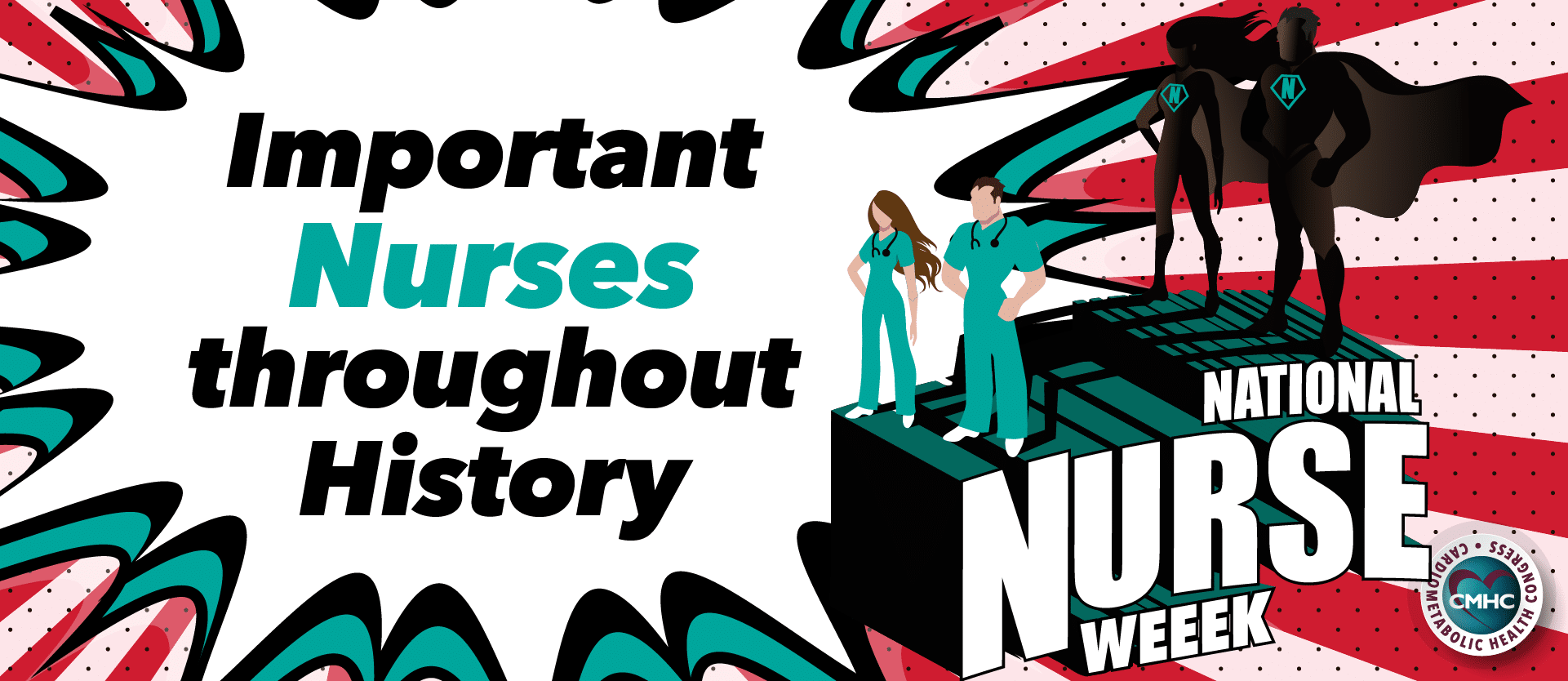May 6th marks the beginning of National Nurses Week, commemorating the crucial role of nurses in the healthcare system and raising awareness of the value of nursing. The week-long celebration ends on May 12th – the birthday of the founder of modern nursing, Florence Nightingale. Although perhaps the most well-known, Nightingale was not the only nursing pioneer that made history. The nurses below made significant changes to the field through their discoveries, compassion, dedication, and practice – together forging the profession of modern nursing.
Florence Nightingale (1820-1910)
One of the most famous names in nursing, Florence Nightingale was an English social reformer and founder of modern nursing. Florence Nightingale advocated for patient and human rights, established new standards in healthcare as well as the concept of holistic nursing. She began her career in Egypt, where she underwent her first formal nursing training, with further trainings in Germany and France. Nightingale went on to voluntarily serve as Superintendent at the Institute for the Care of Sick Gentlewomen in London before her most famous contribution came during the Crimean War. Upon reaching the British camps, where she was to tend to military victims, Nightingale discovered the horrific conditions for the wounded and began her reform. She improved sanitation procedures< > as more soldiers were dying from unhygienic conditions than wounds, and drastically improved the hospital survival rate. The focus of her career turned to extending health and survival rates, and she opened the very first nursing school, Nightingale Training School, in 1860.
Dorothea Dix (1802-1887)
A pioneer of mental health advocacy, Dorothea Dix helped to advance the specialty of psychiatric nursing in a time when the mentally ill were neglected. Dix initiated a statewide investigation of the living conditions of the mentally ill in Massachusetts, which revealed that patients were often locked up, abused, and subjected to nearly torturous treatments. Her discoveries led her to create a report of the egregious human rights violations she had witnessed. Dix presented the report to state legislature, thereby leading to the expansion and significant improvement of the state’s mental healthcare system. She performed similar investigations in New Hampshire, Louisiana, North Carolina and other states, increasing awareness across the southern United States and eventually, the entire country. Her work, qualifications as a caregiver, and extensive body of research resulted in the creation of asylums nationwide.
Clara Barton (1821-1912)
Clara Barton’s work and dedication still affect millions today. At the start of her career, Barton organized and delivered medical supplies during the Civil War before moving on to treating wounded soldiers. She was so effective as a nurse that she was later put in charge of the Union hospitals. Barton spoke publicly about her wartime experiences, achieving nationwide recognition as the “Florence Nightingale of America”. After traveling to Europe and working with the Red Cross, she decided to bring the association back to America and was able to establish the American Red Cross under the administration of President Chester Arthur. Her impact on healthcare can be felt today, as the Red Cross continues to assist victims of natural disasters around the United States.
Mary Eliza Mahoney (1845-1926)
Mary Eliza Mahoney began her groundbreaking nursing career as an untrained practical nurse and janitor at the New England Hospital for Women and Children. She was accepted into the hospital’s graduate nursing program, and graduated as one of the only three students to complete the course, making her the first African American in the U.S. to graduate from nursing school and work as a professional nurse. After graduation, she went on to work as a private care nurse before co-founding the National Association of Colored Graduate Nurses. Largely due to her efforts, the number of African American nurses doubled from 1910 to 1930. Mahoney made history by raising the status of nurses of color in the profession for decades to come.
Hazel Johnson-Brown (1927-2011)
Hazel Johnson-Brown made history as a nurse and educator serving in the United States Army for nearly three decades. Johnson enlisted in the Army in 1955, and began her career as a staff nurse in Japan. Throughout the 1960s, she trained surgical nurses on their way to Vietnam during the war. In 1979, she was serving as chief nurse of the Army hospital in Seoul, South Korea when she was promoted to brigadier general of the U.S. Army Nurse Corps, as the Army’s first African American female general. Her groundbreaking military nursing career paved the way for African American women serving in the military.
Not only did these pioneer nurses save countless lives and reform healthcare standards throughout their careers, but they also helped forge the path of modern nursing for the 4 million registered nurses practicing today. We’re wishing a very happy National Nurses Week to the awe-inspiring nurses dedicated to enhancing patient care each and every day.


















